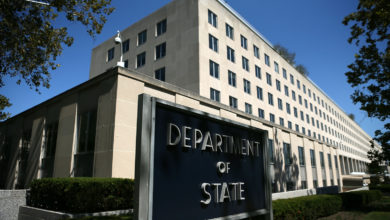
Moody’s Investors Service (“Moody’s”) has today affirmed the Government of Armenia’s Ba3 local and foreign currency long-term issuer ratings and foreign currency senior unsecured rating. The outlook remains stable.
The affirmation of the Ba3 ratings is driven by the credit profile’s resilience to the significant shocks of the coronavirus pandemic and geopolitical and domestic political tensions, and Moody’s expectations that growth and fiscal strength will recover over the medium term. The fiscal profile in particular has proven resilient and will stabilize over the medium term, with debt consolidation expected from 2021 onward as growth and revenue rebound, and as the government adjusts expenditure downward in line with fiscal rules.
Meanwhile, Moody’s assesses that the 2020 ceasefire agreement with Azerbaijan and the June snap parliamentary election have reduced near-term political risks, supporting economic recovery and minimizing the impact to Armenia’s fundamental growth outlook. External deficits drive currency valuation risks that can transmit to fiscal strength and financial stability, although external buffers have increased to withstand these potential shocks.
The stable outlook reflects balanced risks to the Ba3 rating. While a developing track record of policy effectiveness supports the development of a diversity of higher productivity sectors, growth potential remains constrained by demographic pressures and the small scale of the economy. Upside risk stems from more effective reforms that contribute to sustained growth at higher rates than Moody’s currently assumes over the medium term. Event risk remains the key source of downside risk due to geopolitical tensions with neighboring countries, and external vulnerability and banking system risks resulting from the high share of foreign-currency debt, structural current account deficits, and a highly dollarized banking system.
Armenia’s local and foreign currency country ceilings remain unchanged at Baa2 and Ba1, respectively. The four-notch gap between the local currency ceiling and the sovereign rating reflects a balance between the government’s small footprint in the economy and strong institutions, and geopolitical tensions with neighboring countries and external deficits that expose the economy to external shocks. The two-notch gap between the foreign currency ceiling and the local currency ceiling incorporates Moody’s assessment of Armenia’s policy effectiveness and transfer and convertibility restrictions in times of stress.








